Core Leads
Natalia S. Rost, MD, MPH
Admin Core Lead

Natalia S. Rost, MD, MPH is Stroke Division Chief in the Department of Neurology at Massachusetts General Hospital and Professor of Neurology at Harvard Medical School. A cum laude graduate of Boston University School of Medicine, she holds a Master’s degree from Harvard School of Public Health and is trained in Neurology and Vascular Neurology at Partners (Massachusetts General Hospital/Brigham and Women’s Hospital) residency and fellowship programs.
Rost is a clinician-scientist and international expert on neuroimaging markers of cerebrovascular disease, stroke genetics, and big data science for outcome prediction in patients with acute stroke. Her line of research on the role of white matter disease burden and mechanisms of brain resilience in stroke has been continuously funded since 2007, and Rost is currently the Samana Cay MGH Research Scholar and Principal Investigator of two NIH R01 awards and of DISCOVERY, a collaborative national network supported by one of the largest single-study awards to the MGH Neurology department, a U19 jointly funded by the NINDS/NIA to address post-stroke cognitive impairment and dementia in the United States.
Rost is an author of numerous peer-reviewed publications, book chapters, a co-author of the MGH Handbook of Neurology, and medical editor of the Harvard Medical School Special Health Report on stroke. She is an accomplished mentor, clinical educator, and recipient of the 2017 MGH Neurology Department’s Ray Adams Clinical Mentor Award and of the 2012 Michael S. Pessin Stroke Leadership Award from the American Academy of Neurology. She serves as Assistant Editor of the journal Stroke and Chair of the Science Committee of the American Academy.
James Meschia, M.D.
Recruitment & Retention Core Lead
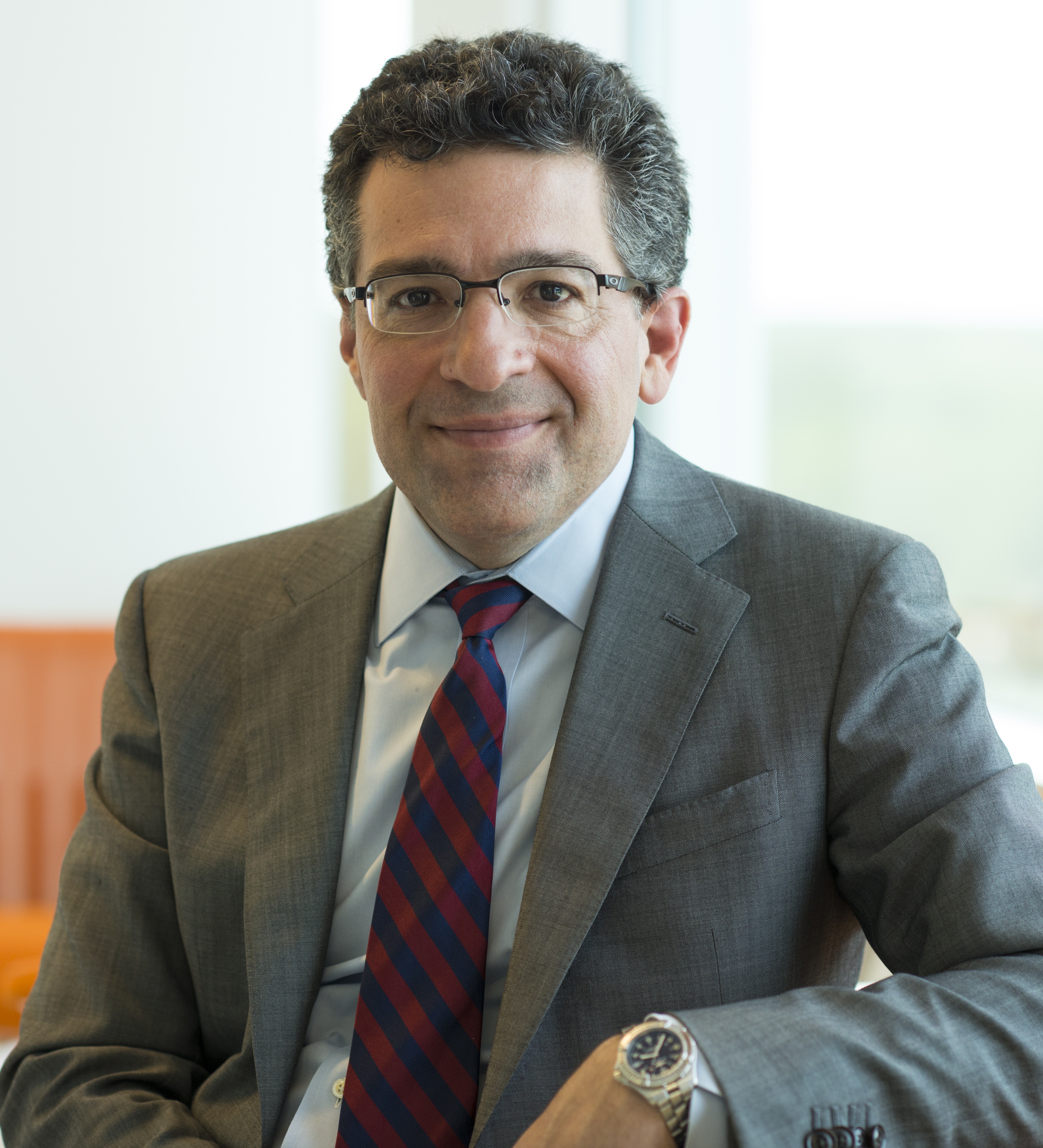
Graduating from Johns Hopkins University School of Medicine in 1992, Meschia went on to complete an Internal Medicine year at the University of Colorado. He completed Neurology Residency at Washington University in St. Louis in 1996. He completed a Vascular Neurology fellowship at Indiana University in 1997. From there he joined the staff at Mayo Clinic Florida. Having served as Chair of the Cerebrovascular Division across the Mayo Clinic Foundation, he went on to become Chair of the Department of Neurology at Mayo Clinic in Florida in 2012. His early research focused on genetic risk factors for ischemic stroke. He was PI of the first multicenter genome-wide association study of ischemic stroke, known as ISGS, and PI of SWISS, the only multicenter affected sibling pair study of ischemic stroke. He also served as co-PI of the NINDS Stroke Genetics Network (SiGN). He was an Executive Committee member of the Carotid Endarterectomy versus Stenting Trial (CREST) and is co-PI of the Clinical Coordinating Center for the CREST-2 trial comparing intensive medical management to revascularization in asymptomatic patients. He is author of >250 peer-reviewed publications and has served on the Editorial Boards of Stroke, the European Journal of Neurology, the Journal of Stroke and Cerebrovascular Diseases, and Mayo Clinic Proceedings. He has been a member of several Scientific Review Groups for NINDS and the AHA and is Chair of the Data and Safety Monitoring Board of the NINDS NeuroNEXT clinical trial network. He is Fellow of the AAN, ANA, and AHA.
Karl Helmer, PhD
Repository Core Lead

Karl Helmer, Ph.D. is a Research Staff member in the Department of Radiology, Massachusetts General Hospital and the Athinoula A. Martinos Center for Biomedical Imaging and Assistant Professor in the Department of Radiology, Harvard Medical School. His training is in MR imaging physics and his research centers around the use of MRI in multi-site trials and the development of standards, tools and infrastructure to facilitate data sharing in neuroscience.
Rebecca Gottesman, MD, PhD
Cognitive & Statistics Core Co-Lead
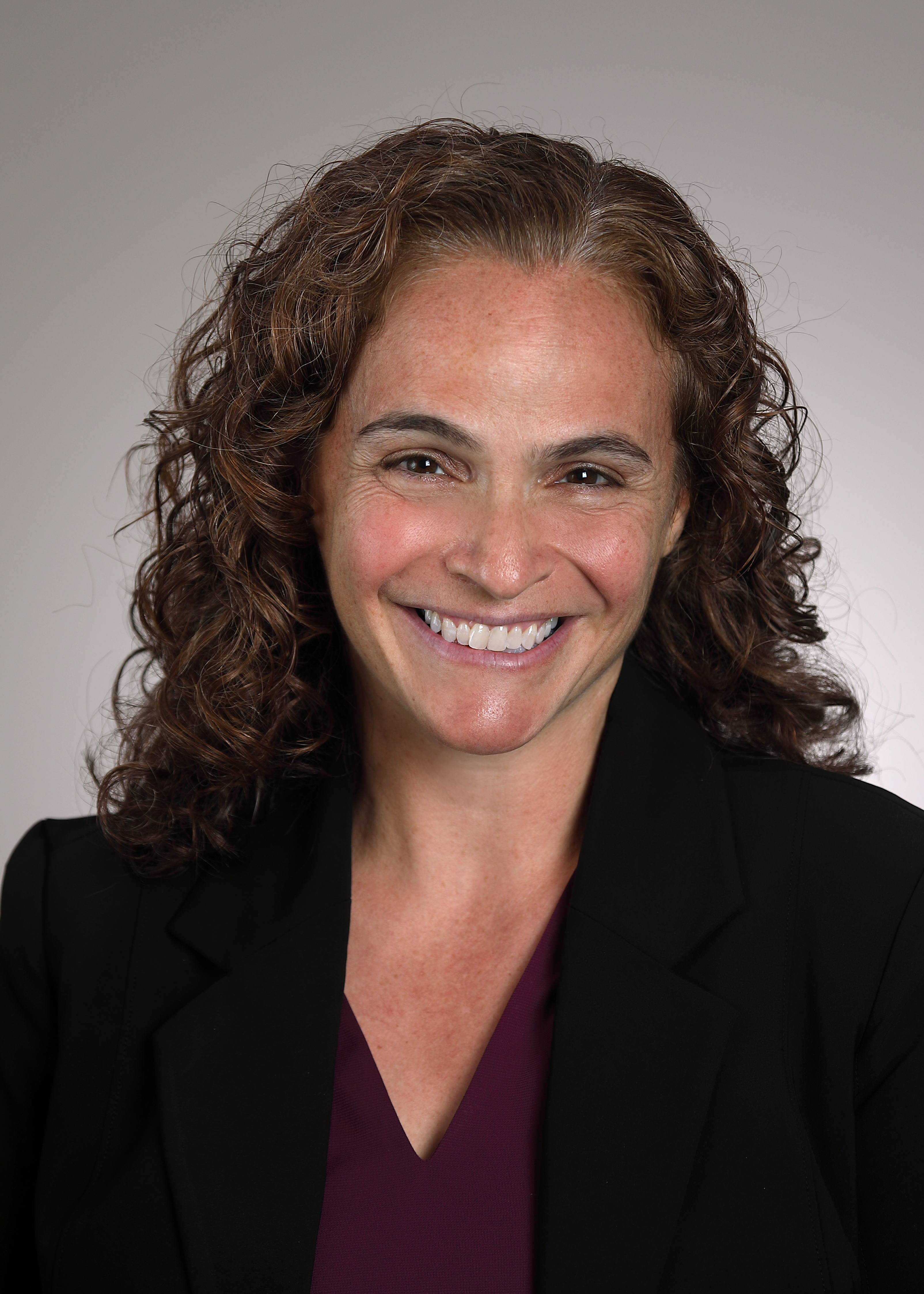
Rebecca Gottesman is the Stroke Branch Chief and Head of the Stroke, Cognition, And Neuroepidemiology section at the National Institute of Neurologic Disorders and Stroke Intramural Research Program, at the National Institutes of Health, and Adjunct Professor of Neurology and Epidemiology at the Johns Hopkins University School of Medicine. She completed her undergraduate and medical training at Columbia University, then did neurology residency and a vascular neurology fellowship at the Johns Hopkins Hospital, and completed a PhD in Clinical Investigation at the Johns Hopkins Bloomberg School of Public Health. Dr. Gottesman conducts research as part of the Atherosclerosis Risk in Communities (ARIC) study. Her research focuses on the vascular contribution to cognitive impairment and dementia, including Alzheimer’s Disease (AD). She received the Outstanding Stroke Research Mentor award at the 2019 International Stroke Conference and has served as a member of both American Heart Association (AHA) and NIH study sections.
Lisa Wruck, PhD
Cognitive & Statistics Core Co-Lead

Lisa Wruck is Director of the Center for Predictive Medicine at Duke Clinical Research Institute. She completed her undergraduate training in Mathematics at University of Florida and completed a PhD in Biostatistics at Harvard School of Public Health. Before coming to Duke, Dr. Wruck was a Clinical Associate Professor of Biostatistics with an appointment in the Collaborative Studies Coordinating Center at UNC-Chapel Hill, where she was a co-PI of the Atherosclerosis Risk in Communities (ARIC) Coordinating Center and a PI of the ARIC Neurocognitive Study (NCS) Coordinating Center. She has over 12 years of experience as a coordinating center biostatistician across therapeutic areas including adult and pediatric cardiology, neurology, urogynecology and autoimmune disease. Her research interests include meaningful use of real world data and examination of risk factors for adverse events in the elderly, including dementia, heart failure, MI and stroke. She is the Director of the Duke AI Health Data Science Fellowship Program. She is the co-PI of the DISCOVERY Statistical/ Cognitive Core.
Sub-Study Leads
Natalia S. Rost, MD, MPH
Acute MRI Sub-Study

Natalia S. Rost, MD, MPH, FAAN, FAHA is Stroke Division Chief in the Department of Neurology at Massachusetts General Hospital and Professor of Neurology at Harvard Medical School. A cum laude graduate of Boston University School of Medicine, she holds a Master’s degree from Harvard School of Public Health and is trained in Neurology and Vascular Neurology at Partners (Massachusetts General Hospital/Brigham and Women’s Hospital) residency and fellowship programs.
Rost is a clinician-scientist and international expert on neuroimaging markers of cerebrovascular disease, stroke genetics, and big data science for outcome prediction in patients with acute stroke. Her line of research on the role of white matter disease burden and mechanisms of brain resilience in stroke has been continuously funded since 2007, and Rost is currently the Samana Cay MGH Research Scholar and Principal Investigator of two NIH R01 awards and of DISCOVERY, a collaborative national network supported by one of the largest single-study awards to the MGH Neurology department, a U19 jointly funded by the NINDS/NIA to address post-stroke cognitive impairment and dementia in the United States.
Rost is an author of numerous peer-reviewed publications, book chapters, a co-author of the MGH Handbook of Neurology, and medical editor of the Harvard Medical School Special Health Report on stroke. She is an accomplished mentor, clinical educator, and recipient of the 2017 MGH Neurology Department’s Ray Adams Clinical Mentor Award and of the 2012 Michael S. Pessin Stroke Leadership Award from the American Academy of Neurology. She serves as Assistant Editor of the journal Stroke and Chair of the Science Committee of the American Academy.
Polina Golland, PhD
Acute MRI Sub-Study
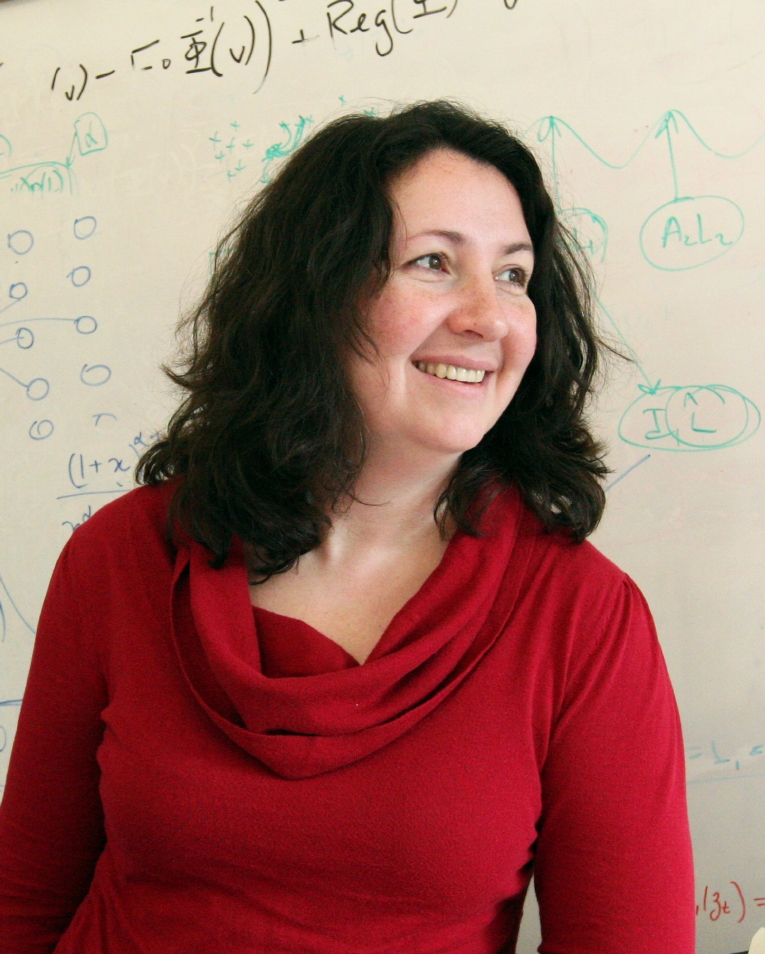
Polina Golland is a Henry Ellis Warren (1894) professor of Electrical Engineering and Computer Science at MIT and a principal investigator in the MIT Computer Science and Artificial Intelligence Laboratory (CSAIL). Her primary research interest is in developing novel techniques for medical image analysis and understanding. With her students, Polina has demonstrated novel approaches to image segmentation, shape analysis, functional image analysis and population studies. She has served as an associate editor of the IEEE Transactions on Medical Imaging and of the IEEE Transactions on Pattern Analysis. Polina is currently on the editorial board of the Journal of Medical Image Analysis. She is a Fellow of the International Society for Medical Image Computing and Computer Assisted Interventions.
Jayashree Kalpathy-Cramer, PhD
Acute MRI Sub-Study

Jayashree Kalpathy-Cramer is the Director of the QTIM lab and the Center for Machine Learning at the Athinoula A. Martinos Center for Biomedical Imaging and an Associate Professor of Radiology at MGH/Harvard Medical School. Kalpathy-Cramer is also Scientific Director at MGB Center for Clinical Data Science and a Senior Scientist at the American College of Radiology Data Science Institute. She is an electrical engineer by training, having received a B.Tech in EE from IIT Bombay and a PhD in EE from Rensselaer Polytechnic Institute.
Her research interests include medical image analysis, machine learning and artificial intelligence for applications in radiology, neurology, oncology and ophthalmology. The work in her lab spans the spectrum from novel algorithm development to clinical deployment. She is passionate about the potential that these techniques have to improve access to healthcare in the US and worldwide. Kalpathy-Cramer has authored over 100 peer-reviewed publications and has written over a dozen book chapters.
She is a Deputy Editor for the Radiology-AI journal, a journal from the Radiological Society of North America focused on the applications of AI in Radiology. This year, she was elected to the Council of Distinguished Investigators of the Academy for Radiology & Biomedical Imaging Research.
David Knopman, MD
AD/RD Sub-Study
Knopman is an experienced clinical neurologist with interests in the spectrum of degenerative and cerebrovascular diseases causing cognitive impairment. He is an Associate Director of the Mayo Alzheimer’s Disease Research Center. Knopman has also been involved in clinical trials in AD and FTD. He is past chair of the Medical Advisory Council of the Association for Frontotemporal Dementia. He is immediate past-chair of the MSAC of the Alzheimer Association and was on the steering committee of the National Alzheimer Prevention Act Alzheimer Disease and Related Disorders Workshops in May 2013, March 2016 and March 2019.
Ronald Petersen, MD, PhD
AD/RD Sub-Study

Ronald C. Petersen received a Ph.D. in Experimental Psychology from the University of Minnesota and graduated from Mayo Medical School in 1980. He completed an internship in Medicine at Stanford University Medical Center and returned to the Mayo Clinic to complete a residency in Neurology. That was followed by a fellowship in Behavioral Neurology at Harvard University Medical School/Beth Israel Hospital in Boston, Massachusetts. Petersen joined the staff of the Mayo Clinic in 1986 and became a Professor of Neurology in 1996. In 2000 he was named the Cora Kanow Professor of Alzheimer’s Disease Research and Mayo Clinic Distinguished Investigator in 2011. He is currently the Director of the Mayo Alzheimer’s Disease Research Center and the Mayo Clinic Study of Aging and has authored over 960 peer-reviewed articles on memory disorders, aging, and Alzheimer’s disease.
Petersen is one of the recipients of the 2004 MetLife Award for Medical Research in Alzheimer’s Disease and the 2005 Potamkin Prize for Research in Picks, Alzheimer’s and Related Disorders of the American Academy of Neurology. In 2012 he received the Khachaturian Award and the Henry Wisniewski Lifetime Achievement Award in 2013 from the Alzheimer’s Association. In 2011 he was appointed by the Secretary of Health and Human Services to serve as the Chair of the Advisory Committee on Research, Care and Services for the National Alzheimer’s Disease Plan, and in 2014, he was appointed to the World Dementia Council by the UK government.
Jonathan Graff-Radford, MD
AD/RD Sub-Study
PET/Longitudinal Sub-Study
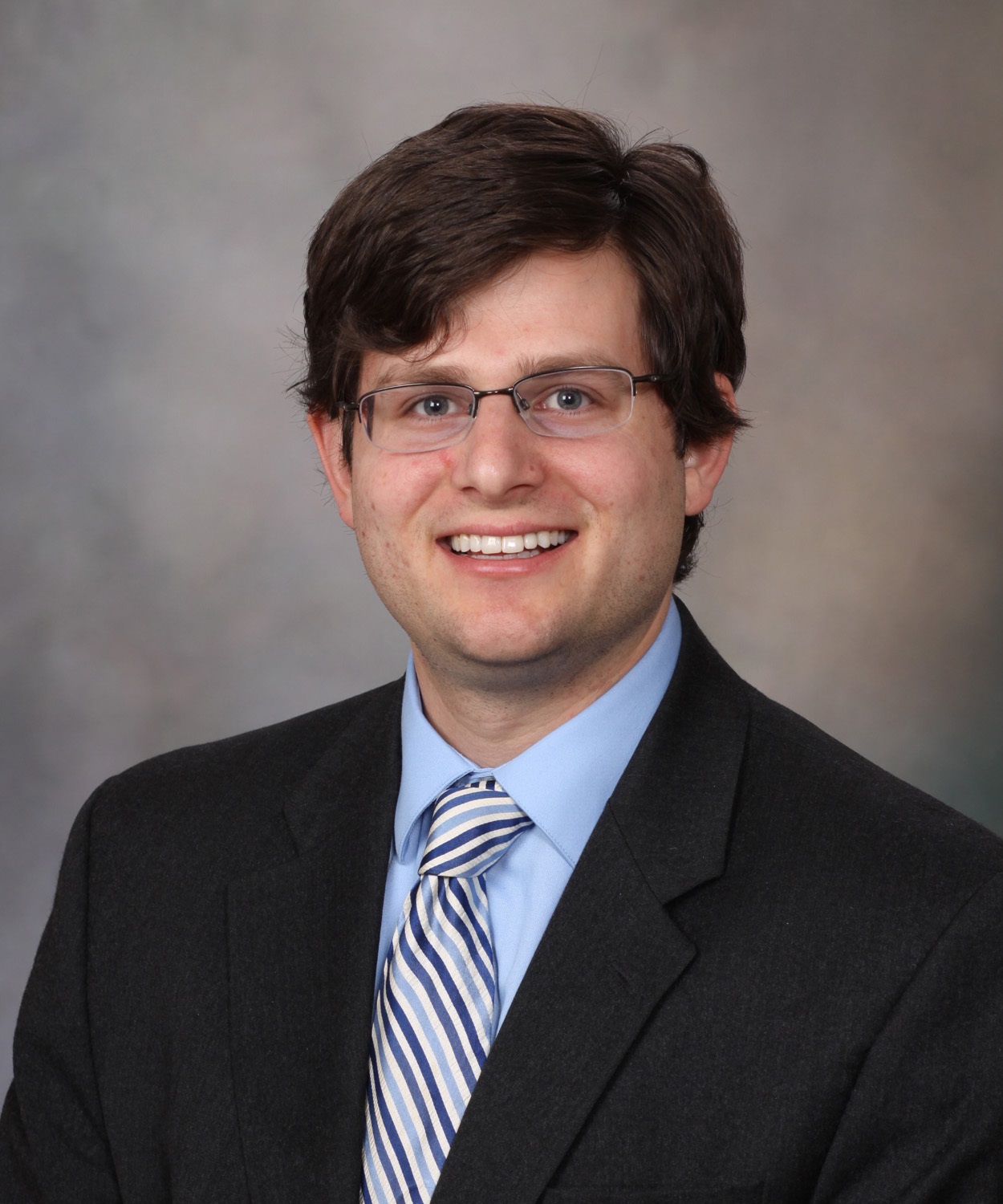
Graff-Radford is a neurologist at Mayo Clinic in Rochester where he evaluates and treats patients with neurodegenerative disorders and cerebrovascular diseases. He completed fellowships in behavioral neurology and cerebrovascular neurology and a one-year post-doctoral research certificate through Mayo Clinic's Center for Clinical and Translational Science. He serves as a co-investigator in the Mayo Clinic Alzheimer’s Disease Research Center and the Mayo Clinic Study of aging. He currently has a National Institute of Aging K76 career development award to study the pathogenesis of cerebral microbleeds. His research focuses on how neurodegenerative disease and cerebrovascular disease intersect to cause cognitive decline.
Bruce Fischl, PhD
Structural/Functional MRI Sub-Study
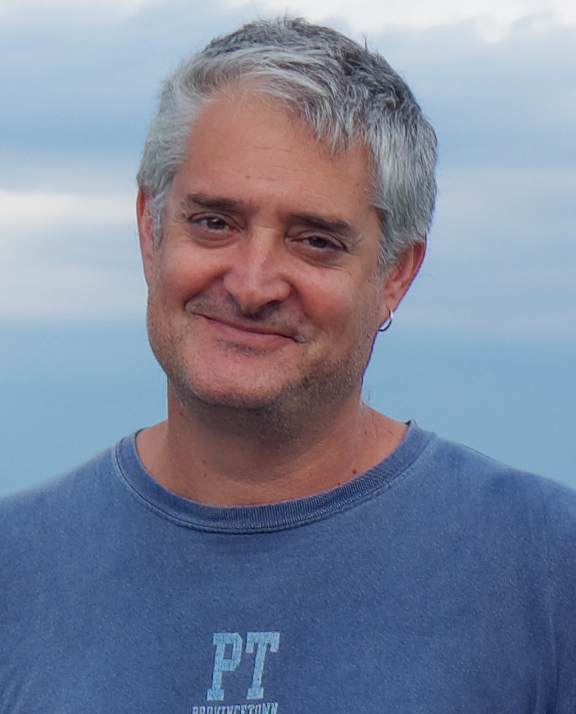 Bruce Fischl's research involves the development of novel techniques for the generation of models of neuroanatomical structures using MRI. This includes the automatic construction of geometrically accurate and topologically correct models of the human cerebral cortex, as well as segmentation of over 35 subcortical and ventricular structures. The cortical models have been useful in a number of domains, including the development of a technique that exploits the correlation between cortical folding patterns and function to generate a more accurate mapping across different brains. This high-dimensional nonlinear registration procedure results in a substantial increase in statistical power over more standard methods of inter-subject averaging and allows the automatic labeling of many anatomical features of the cortex. The surface models also yield measures of the thickness of the cortical ribbon, which is of great clinical and research significance as many neurodegenerative diseases result in progressive, regionally specific atrophy of the cortical gray matter.
Bruce Fischl's research involves the development of novel techniques for the generation of models of neuroanatomical structures using MRI. This includes the automatic construction of geometrically accurate and topologically correct models of the human cerebral cortex, as well as segmentation of over 35 subcortical and ventricular structures. The cortical models have been useful in a number of domains, including the development of a technique that exploits the correlation between cortical folding patterns and function to generate a more accurate mapping across different brains. This high-dimensional nonlinear registration procedure results in a substantial increase in statistical power over more standard methods of inter-subject averaging and allows the automatic labeling of many anatomical features of the cortex. The surface models also yield measures of the thickness of the cortical ribbon, which is of great clinical and research significance as many neurodegenerative diseases result in progressive, regionally specific atrophy of the cortical gray matter.Clifford R. Jack, Jr., M.D.
Structural/Functional MRI Sub-Study
Clifford R. Jack, Jr., M.D., is a consultant in the Department of Radiology at Mayo Clinic in Rochester, Minnesota. Jack joined the staff of Mayo Clinic in 1985 and holds the academic rank of professor of radiology, Mayo Clinic College of Medicine and Science. He is recognized with the distinction of the Alexander Family Professorship in Alzheimer’s Disease Research.
Prashanthi Vemuri, PhD
Structural/Functional MRI Sub-Study
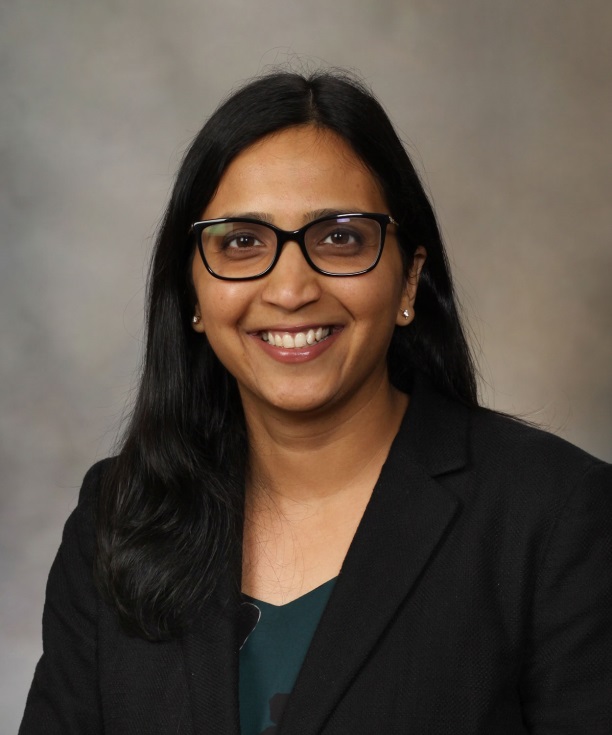
Vemuri is an Associate Professor in the Department of Radiology, Mayo Clinic Rochester and an imaging researcher in the population based sample of Mayo Clinic Study of Aging. She has a broad background in engineering and clinical neuroscience, with specific training and expertise in imaging of neurodegenerative disorders. Her areas of research are 1) Investigating mechanisms through which protective and risk factors influence AD imaging biomarkers and outcomes and 2) Developing and validating imaging-based biomarkers to improve the understanding and management of Alzheimer's disease and cerebrovascular disease.
Vemuri has over 150 peer-reviewed journal articles and numerous conference abstracts and book chapters to her credit. Her research work is supported by the National Institutes of Health (NIA and NINDS). She also leads MRI cores for large multi-center clinical studies on stroke (DISCOVERY) and Alzheimer’s disease (LEADS and US POINTER). She is the Chair of a large international professional area interest group on Reserve, Resilience, and Protective Factors and serves on several national and international committees including NIH study sections in her research area. Vemuri is recipient of the NIH K99/R00 Pathway to Independence grant from the NIA, was awarded the AFAR-GE healthcare junior investigator award for excellence in aging and imaging research and the 2020 de Leon Prize in Neuroimaging in the Senior Scientist category.
Val Lowe, MD
PET/Longitudinal Sub-Study

Val J. Lowe, MD is a Professor of Radiology at Mayo Clinic, Rochester, Minnesota, USA, and is the director of the Mayo Clinic Molecular Imaging Resource. Lowe has served on numerous NIH review committees and panels. He has over 400 peer-reviewed publications, several patents and has funding through 22 NIH grants to study imaging. He has served as the President of the World Molecular Imaging Society and is an elected fellow of the Society. Lowe’s lab does PET radiotracer development, preclinical imaging and human imaging. Lowe and research collaborators at Mayo Clinic are evaluating the utility of PET and MRI multimodality brain imaging in neurodegenerative disease and aging. They test imaging as a way to evaluate populations for prediction, prevention and therapy of neurodegenerative disease.
Sudha Seshadri, MD
Genetics/Genomics Sub-Study

Sudha Seshadri, MD, FAAN, FANA is a board-certified neurologist who has been caring for patients with dementia for over 2 decades. Since December 2017, she is the Founding Director of the Glenn Biggs Institute for Alzheimer’s and Neurodegenerative Diseases, and holds the Robert R. Barker Distinguished University Chair as Professor of Neurology, Psychiatry and Cellular and Integrative Physiology within the University of Texas Health Sciences Center, San Antonio, Texas. She also holds an adjunct appointment as Professor of Neurology at Boston University School of Medicine and as a Senior Investigator at the Framingham Heart Study, where she leads the Neurology and Neurogenetics cores and serves as Principal Investigator of the Dementia, Stroke, Neuroimaging and Brain Banking Initiatives.
Myriam Fornage, PhD
Genetics/Genomics Sub-Study

Fornage is a Professor of Molecular Medicine and Human Genetics and the Laurence and Johanna Favrot Distinguished Professor at the University of Texas Health Science Center at Houston, Texas. Her research program investigates the genetics and genomics of brain vascular disease and brain aging in diverse populations from young adulthood to old age. She is an active investigator of several large national and international consortia, including the Cohorts of Heart and Aging Research in Genomic Epidemiology (CHARGE) consortium, the Population Architecture using Genomics and Epidemiology (PAGE) consortium, the NHLBI Trans-Omics for Precision Medicine (TOPMed) Program and the NIA Alzheimer Disease Sequencing Project (ADSP). She has served on several NIH expert advisory panels, including as a member of the Genetics of Health and Disease (GHD) study section. She is a member of the Leadership Committee of the American Heart Association Council on Genomic and Precision Medicine and Stroke Councils.
Alessandro Biffi, MD
ICH/SAH/VCID Sub-Study
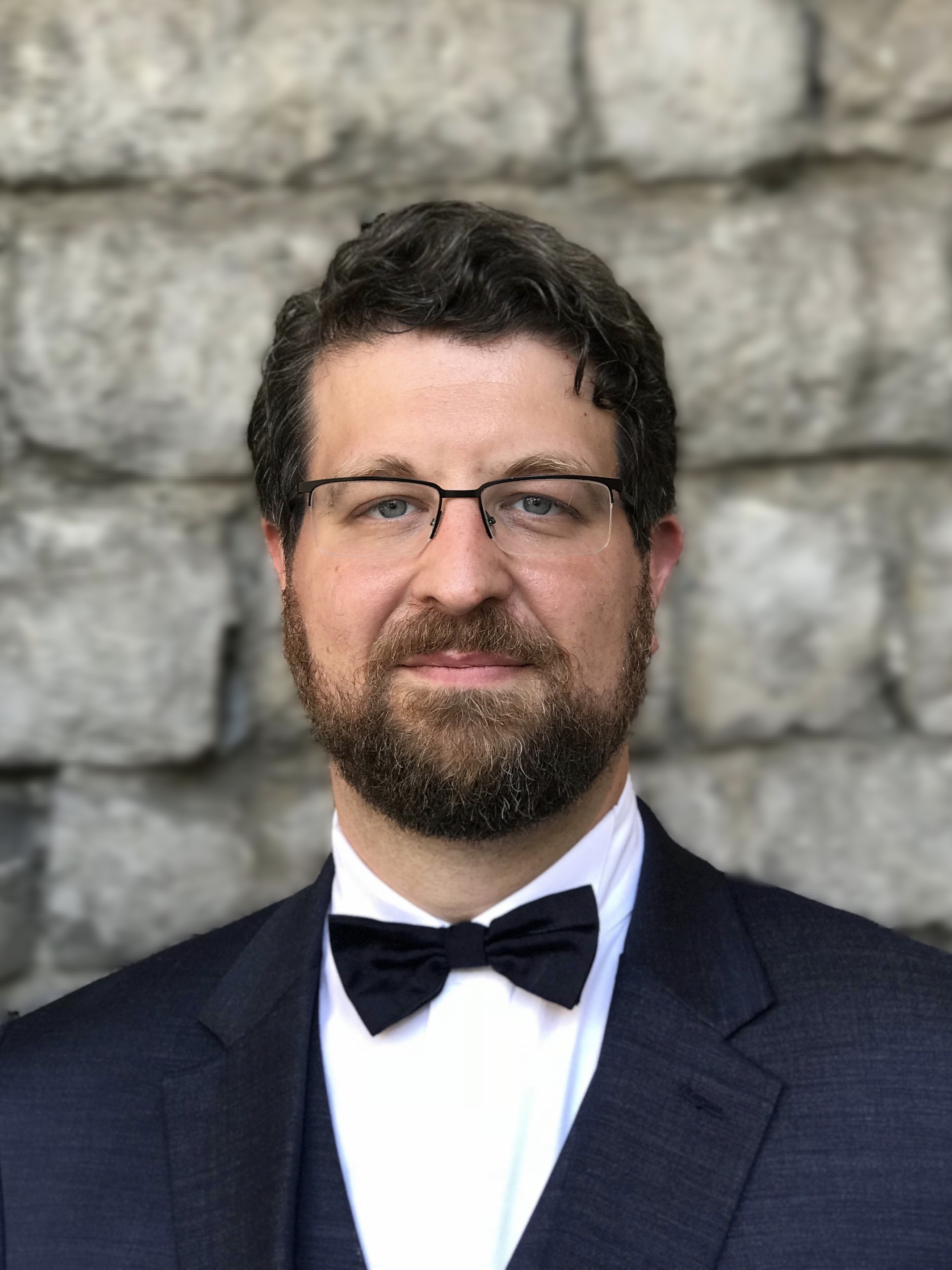
Alessandro Biffi received his MD degree from University of Milan-Bicocca (Milan, Italy), and completed residency training in Neurology with the Massachusetts General Hospital /Brigham and Women’s Hospital/Harvard Medical School training program. He subsequently completed a Behavioral Neurology and Neuropsychiatry Fellowship at Massachusetts General Hospital. Biffi's previous research training and expertise include statistical methodology, neurogenomics, neuroepidemiology and brain imaging. He has established the Aging & Brain Health Research Group at Massachusetts General Hospital, tasked with developing precision medicine tools for prevention and treatment of cognitive, behavioral and psychiatric disorders of aging. His primary research and clinical focus is prevention, diagnosis and treatment of neurocognitive and neuropsychiatric manifestations of cerebrovascular disorders.
Anand Viswanathan, MD, PhD
ICH/SAH/VCID Sub-Study

Anand Viswanathan is a Vascular Neurologist and physician scientist who studies the relationship between vascular disease and cognitive impairment. His clinical and research goals are to better understand the pathophysiologic mechanisms underlying cognitive impairment and dementia associated with aging. Silent stroke and lesions due to cerebral small-vessel pathology are highly frequent in the elderly and impact cognition. His group’s area of research focuses on these cerebral small vessel diseases of the brain which, through silent ischemic stroke and intercerebral hemorrhage (ICH), can lead to vascular cognitive impairment and dementia in elders. Two such diseases that they study are cerebral amyloid angiopathy (CAA) and cerebral autosomal dominant arteriopathy with subcortical infarcts and leukoencephalopathy (CADASIL). He is an active member of the MGH Stroke Service and an executive committee member of the Massachusetts Alzheimer’s disease research center (MADRC). He had been the recipient of a K23 Mentored Patient-Oriented Research Award which investigates cognitive impairment and gait dysfunction in CAA. He led a sub-project on the MADRC program project grant (P50) during the previous funding period (2009-2014) related to influence of CAA on cognition in patients with early Alzheimer’s disease. He is the PI of an NIH-funded grant that investigates vascular dysfunction in early and asymptomatic CAA (R01AG047975). He has the expertise and experience to serve as a lead co-investigator on the DISCOVERY Hemorrhagic Stroke substudy, working closely with Dr. Alessandro Biffi, with whom they already have a very close collaboration in the area of cognitive outcomes of ICH.
Jason Hinman, MD, PhD
Fluid Biomarkers Sub-Study
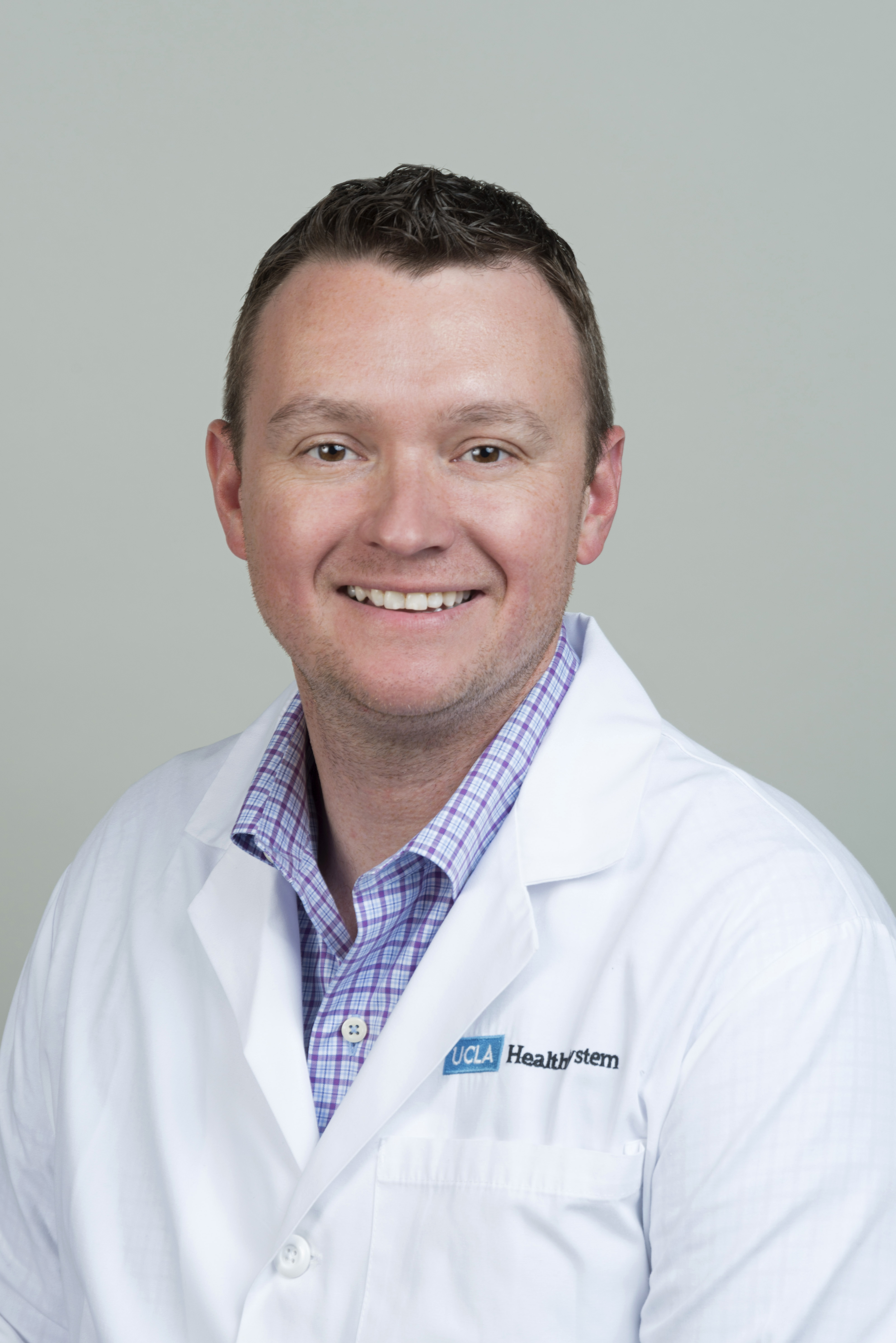
Jason D. Hinman is Assistant Professor of Neurology at the David Geffen School of Medicine on the campus of the University of California Los Angeles. A physician-scientist with clinical expertise in stroke and stroke recovery, Hinman’s laboratory focuses on translational neuroscience at the interface of stroke, cerebrovascular disease, and dementia. The lab uses cell-specific transcriptional profiling in models of stroke and dementia to identify novel cellular and molecular pathways relevant to these two most common neurologic illnesses. From these discoveries, Hinman’s lab aims to translate these findings into new diagnostic and therapeutic approaches for stroke, cognitive impairment, and dementia.


